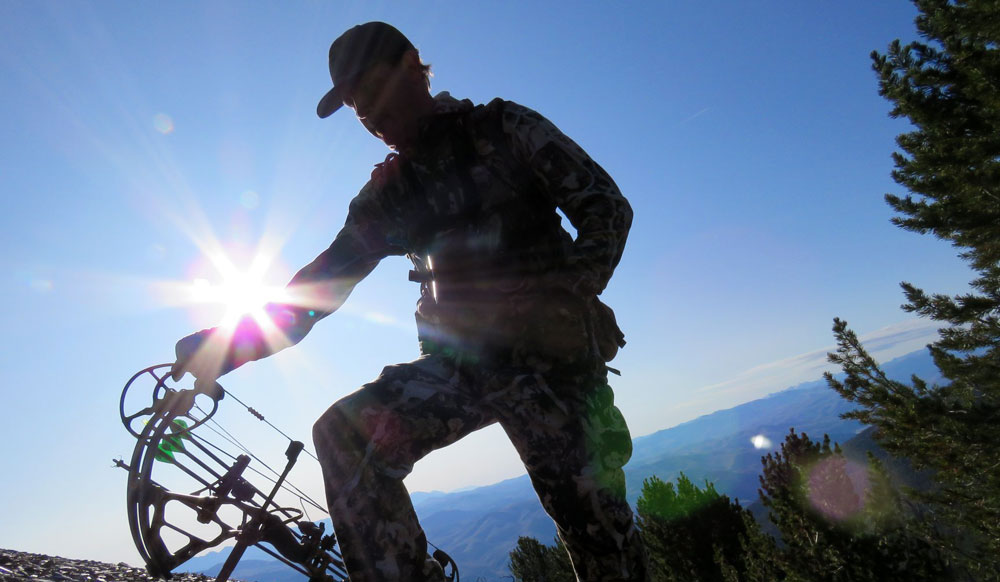Below is a news release from the Idaho Department of Fish and Game.
With many of Idaho’s hunting seasons underway or about to begin, the Idaho Department of Fish and Game reminds hunters that they can avoid running afoul with the law this fall by simply reviewing the regulations.
“Accidents happen and simple mistakes are made every year that get hunters into trouble,” said David Silcock, Fish and Game regional conservation officer based in Salmon. “We see many violations that can be avoided if hunters just take the time to review and understand the regulations.”
Understanding and following Idaho’s hunting rules is every hunter’s legal responsibility. Ignorance is never an acceptable excuse for breaking the rules.
“If you’re unsure, check the regulations first and don’t hesitate to contact us if you have any questions,” he added.
Idaho’s hunting seasons and rules booklets are available at over 400 Fish and Game license vendors across the state. Many troubles can be avoided by brushing up on the rules in the Big Game Seasons and Rules booklet.
Below are 10 common violations that Fish and Game officers encounter each fall:
No Evidence of Sex Attached: Evidence of sex must be left naturally attached to the carcass or largest portion of meat if boned, or hide for mountain lion, black bear and wolf.
Failure to properly tag or attach tag: The notches for the month and date must be completely removed and the tag must be attached to the animal immediately following harvest.
Failure to stop at a check station: All hunters, anglers, and trappers – regardless if they harvested or not – must stop and report at each check station they encounter during their travel to and from their hunting locations.
Possession and Transportation without Proxy Statement: A proxy statement is required to transport wildlife taken by another person. A blank form is available in all the regulation booklets, plus hunters receive one with each tag they purchase.
Shooting from or across a public highway or right of way: Shooting from or across a public highway or road right of way is a public safety issue for both the shooter and people traveling on the road.
Hunting/taking animals in a closed season: It is the hunter responsibility to know season opening and closing dates, what species and sex may be taken, and the hunt boundaries. Don’t assume the rules don’t change from year to year.
Purchase of wrong class license: A hunter or angler is required to purchase and possess the correct license. This violation commonly occurs when individuals, who are not residents of Idaho, purchase Idaho resident licenses. Again, review Idaho’s residency requirements in the rule booklet, and if you have questions, contact your nearest Fish and Game office.
Transfer of license or tag to another: Party hunting or killing an animal for somebody else to put their tag on is illegal.
Trespass: Idaho’s trespass laws changed in 2018, and it’s the responsibility of the hunter/angler to know if they’re on private land. Idaho law states that no person shall enter or remain on private land to shoot any weapon or hunt, fish, trap or retrieve game without written permission or other lawful permission. More information on Idaho’s trespass law and a blank permission form is available in the current Big Game regulation booklet and Fish and Game’s 2018 Trespass Law webpage.
Violate road/area closures: Just like Fish and Game regulations, hunters are expected to know and follow the rules for motorized travel on federal and state lands. Also, big game hunters need to be aware of Idaho’s motorized hunting rule when using motorized vehicles as an aid to hunting. The rule is specific to 30 game management units, mostly in central and southern Idaho.
Fish and Game has taken the top five most common hunting violations and made short videos titled “How to Avoid Common Hunting Violations,” that explain the reasons for each rule and the actions necessary for hunters to stay in compliance.
Hunters are asked to be on the lookout for wildlife violations and report suspicious activity to the Citizens against Poaching hotline at 1-800-632-5999 or online 24-hours a day. Callers can remain anonymous and may be eligible for a reward.
“The more detailed information you provide and the quicker your report it, the more likely a poacher will get caught,” Silcock said. “License plate numbers are extremely useful, as well as location, time, and description of suspects.”
(Photo source: Idaho Department of Fish and Game)
